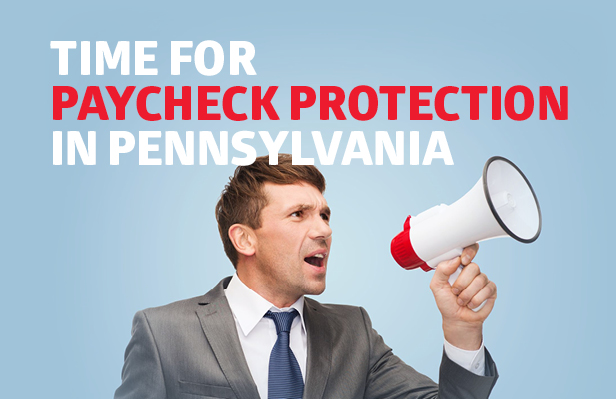Media

Paycheck Protection: Where it Stands
In February, the state Senate passed paycheck protection, which would shield taxpayers from subsidizing government union leaders’ political fundraising.
Now it’s up to the House to protect the interests of taxpayers and end government union leaders' political privilege.
House Speaker Mike Turzai recently voiced his support for the reform at the annual Pennsylvania Leadership Conference, and he called on the House to pass paycheck protection and put it on the governor’s desk:
As the House considers this critical legislation, some key points deserve repeating.
Since 2007, the state’s largest government unions have spent more than $96 million on politics with the help of taxpayers.
Paycheck protection would stop the use of taxpayer-financed payroll systems to automatically deduct political action committee (PAC) contributions and dues earmarked for politics from workers’ paychecks and send this money to government unions. Instead, these unions—like every other special interest group—would have to collect their political dollars directly from those who give them.
In short, paycheck protection reforms how political money is collected.
To be clear, union leaders use members’ dues for explicitly political purposes, and unions are required to report this political spending. The Pennsylvania State Education Association even includes the following disclaimer in its magazine, noting 10 percent of dues will be used on politics:
In fact, a majority of the nearly $100 million in government union political spending comes from union dues. That’s $55 million since 2007, or $10.7 million in the 2016 election cycle alone. Here are just a few examples of how government union leaders spent their members’ dues.
It’s Ethics 101 that public resources shouldn’t be used for politics. Government union leaders have violated this principle for years by relying on public payroll systems to collect their political money. Paycheck protection would force these union leaders to play by the ethics rules that apply to everyone else in the commonwealth.
Fortunately, many lawmakers understand the importance of paycheck protection and are working to end the use of public resources for politics.